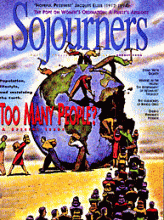Spending a night together helps strengthen the bonds of community. Somehow the psychological impact of knowing that the group will stay the night and not have to "rush back," that you will rise in the morning and take those first drowsy steps together into a new day, that your initial encounters will take place over juice and coffee—these very ordinary details of life go far to build the cohesiveness that is so necessary for community. For that reason above all, successful communities include overnight retreats in their annual plans.
Of course, other considerations go into the need for regular retreats. The community needs, in Jesus’ words, to "come aside and rest awhile." Getting away as a group is good for the spirit and body of each and all. People on retreat tend to be more their true, good selves, and in that sort of climate the members renew their reasons for having come together in the first place. The common vision is brushed up; shared ideals get focused.
The setting for a retreat generally lends itself to tension-free hours. Our times have been gifted with numerous places for "active relaxation." It’s as if the killing pace of late 20th-century life has taught us the need for a refuge, sanctuary, or haven, where we can breathe deeply, sleep soundly, and interact calmly. Such locations exist in virtually every part of our country and must be counted as some of God’s choicest graces.
Retreat-goers have learned the value of free time, or better stated, time for personal solitude and reflection. There was a time when going on a retreat meant an effort to fill up every waking—and some non-waking—hour with activities. Within such a mindset the very word "retreat" becomes a misnomer. Fortunately we have moved away from that counterproductive era of frantic "retreats."
Read the Full Article
